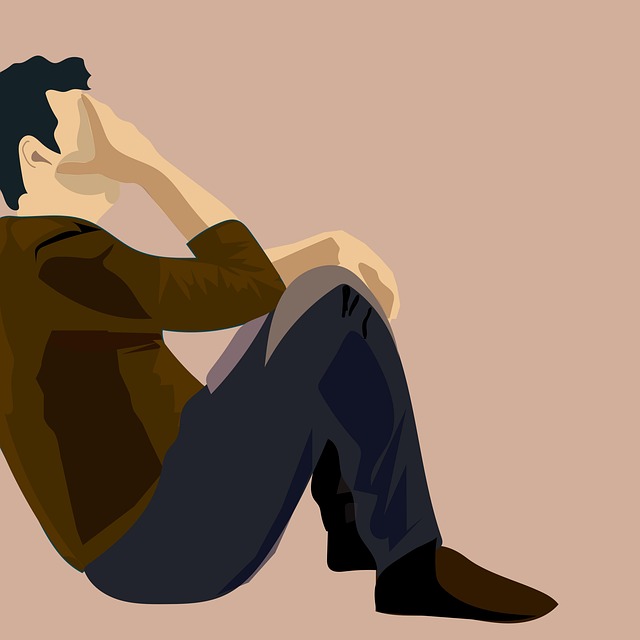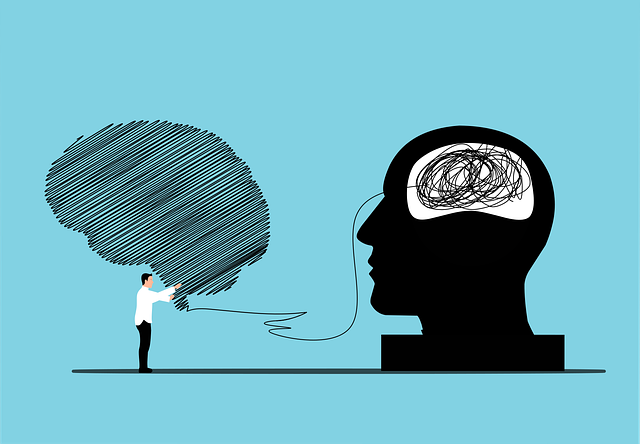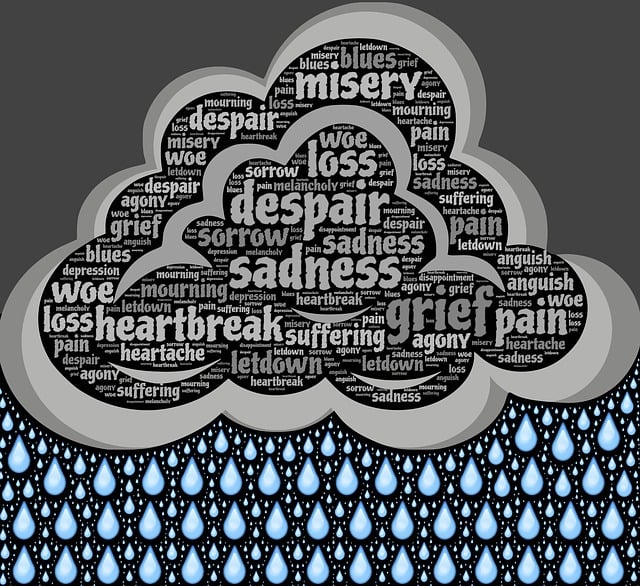Postpartum depression (PPD) is a serious mood disorder affecting new mothers, characterized by sadness, anxiety, exhaustion, and thoughts of self-harm. Diagnosis involves thorough evaluations by healthcare providers using specific screening tools. Early identification is crucial for successful intervention. Effective depression treatment programs for PPD include: cognitive-behavioral therapy (CBT), interpersonal psychotherapy (IPT), mindfulness techniques, support groups, medication (antidepressants), and holistic approaches like nutrition, exercise, and sleep therapy. These comprehensive programs empower new mothers to manage symptoms, improve relationships, and enjoy a happier, healthier postpartum period.
Postpartum depression (PPD) affects many new mothers, but understanding and treating it is crucial. This comprehensive guide explores various evidence-based treatments for PPD, from traditional therapy approaches like cognitive behavioral therapy (CBT) and interpersonal psychotherapy (IPT), to alternative methods such as mindfulness-based therapies and holistic practices. Discover effective programs designed specifically for depression treatment, offering hope and support for recovering mothers.
Understanding Postpartum Depression: Symptoms and Diagnosis

Postpartum depression (PPD) is a common yet serious condition that can affect new mothers, often starting soon after childbirth. It’s more than just feeling ‘the baby blues’—it’s a persistent and intense mood disorder characterized by overwhelming sadness, anxiety, and exhaustion. Symptoms may include severe depression, feelings of hopelessness or worthlessness, excessive crying, changes in appetite and sleep patterns, difficulty concentrating, and even thoughts of self-harm. Diagnosing PPD involves a comprehensive evaluation by a healthcare provider, which may include discussions about the mother’s emotional state, physical health, and personal history, along with specific screening tools for postpartum depression treatment programs. Early identification is crucial as it enables prompt intervention to improve outcomes for both mother and child.
Traditional Therapy Approaches for PPD

Postpartum depression (PPD) is often treated using traditional therapy approaches, which include psychological interventions designed to help new mothers manage their symptoms. One common method is cognitive-behavioral therapy (CBT), which aids individuals in identifying and changing negative thought patterns and behaviors contributing to their depression. By learning coping strategies, problem-solving skills, and relaxation techniques, moms can develop effective ways to navigate the challenges of motherhood while caring for themselves.
Another evidence-based practice is interpersonal psychotherapy (IPT), focusing on improving relationships and social support systems. For many new mothers dealing with PPD, connecting with others—whether through therapy sessions or support groups—is vital. IPT helps individuals explore and resolve interpersonal issues, fostering a sense of belonging and reducing feelings of isolation commonly associated with postpartum depression. These therapy approaches are often part of comprehensive depression treatment programs tailored to the unique needs of each mother.
Evidence-Based Depression Treatment Programs

Postpartum depression (PPD) is a well-documented condition, and there are several evidence-based depression treatment programs designed specifically to address it. These programs focus on various therapeutic approaches backed by rigorous research, ensuring effective management of PPD symptoms. One commonly recommended method is cognitive-behavioral therapy (CBT), which aims to identify and change negative thought patterns and behaviors associated with depression. CBT for PPD often involves teaching new coping strategies and skills to manage stress and improve overall mood.
Additionally, interpersonal therapy (IPT) has proven successful in treating PPD by addressing relationship issues and social challenges that may contribute to depressive symptoms. IPT encourages open communication and helps individuals navigate life transitions and support systems more effectively. Other evidence-based programs incorporate mindfulness techniques, such as mind-body therapies, which promote relaxation and present-moment awareness, helping new mothers regulate emotions and reduce stress levels. These treatment programs offer comprehensive solutions, empowering women to overcome PPD and enjoy a happier, healthier postpartum period.
Cognitive Behavioral Therapy (CBT) for New Mothers

Cognitive Behavioral Therapy (CBT) is a highly effective depression treatment program for new mothers experiencing postpartum depression. This evidence-based approach focuses on identifying and changing negative thought patterns and behaviors, helping mothers challenge unhelpful beliefs and develop healthier coping strategies. By targeting specific symptoms like guilt, self-criticism, and anxiety, CBT empowers women to manage their mood and improve overall well-being.
Through structured sessions with a qualified therapist, CBT equips new mothers with valuable tools to navigate the challenges of motherhood. The therapy provides a safe space for mothers to express their feelings, gain insights into their thoughts and behaviors, and learn practical techniques to cope with stress and emotional difficulties. By addressing underlying issues and promoting positive self-care, CBT offers a sustainable solution for long-term recovery from postpartum depression.
Interpersonal Psychotherapy (IPT): Targeting Social Relationships

Interpersonal Psychotherapy (IPT) is a highly effective depression treatment program that focuses on identifying and resolving interpersonal problems contributing to depression. This therapy targets social relationships, helping individuals navigate and improve their interactions with family, friends, and partners. By addressing issues like conflict resolution, communication difficulties, and feelings of isolation, IPT empowers patients to build healthier connections, which can significantly alleviate symptoms of postpartum depression.
IPT offers a structured approach, typically involving 12-16 sessions, where trained therapists assist individuals in exploring their relationships and understanding how these interactions impact their mental health. This therapy encourages the development of coping strategies to manage interpersonal stressors, fostering a sense of belonging and support that is crucial for overcoming postpartum depression and promoting long-term well-being.
Mindfulness-Based Therapies for Managing PPD

Mindfulness-based therapies have emerged as effective treatments for postpartum depression (PPD), offering a gentle and supportive approach to managing this condition. These programs focus on helping new mothers cultivate present-moment awareness, accept their emotions without judgment, and develop coping strategies grounded in mindfulness practices. Techniques such as meditation, breathing exercises, and body scans can help reduce stress, anxiety, and mood disturbances associated with PPD.
By integrating mindfulness into depression treatment programs, therapists enable women to create a sense of calm and balance amidst the challenges of new motherhood. This proactive approach not only helps manage symptoms but also fosters resilience, allowing mothers to navigate the ups and downs of postpartum life with greater ease.
Support Groups: Finding Community and Understanding

Support groups play a significant role in depression treatment programs, offering a sense of community and understanding for new mothers struggling with postpartum depression. These groups provide a safe and non-judgmental space where women can share their experiences, fears, and hopes. By connecting with others who have faced similar challenges, individuals gain valuable insights, learn coping strategies, and develop supportive networks that can be invaluable during this difficult time.
Through regular meetings, support groups facilitate open dialogue, allowing members to express their feelings and offer encouragement. This collective approach fosters a sense of belonging and reduces the sense of isolation often associated with postpartum depression. Many programs also involve professional facilitators who provide expertise in mental health, ensuring that discussions remain informative and beneficial for all participants.
Medication Options: Antidepressants and Their Role

Postpartum depression treatment programs offer a range of options, with medication often being a key component in managing symptoms. Antidepressants are a common and effective choice for many women suffering from this condition. These medications work by balancing certain brain chemicals that may be contributing to the feelings of sadness, anxiety, or hopelessness associated with postpartum depression. Selective serotonin reuptake inhibitors (SSRIs) and serotonin-norepinephrine reuptake inhibitors (SNRIs) are two primary types often prescribed. SSRIs like fluoxetine and sertraline have been well-studied for their safety and effectiveness in treating postpartum depression, making them a popular choice among healthcare providers. SNRIs, such as venlafaxine and duloxetine, may be considered if SSRIs don’t provide sufficient relief.
The role of antidepressants is to alleviate symptoms over time, providing mothers with the emotional support needed to bond with their babies and navigate the challenges of new motherhood. It’s crucial to remember that these medications should be combined with therapy for optimal results, as they work best in conjunction with other treatment methods tailored to each individual’s needs. This holistic approach ensures comprehensive postpartum depression treatment programs that address both the biological and psychological aspects of this condition.
Holistic Approaches: Nutrition, Exercise, and Sleep Therapy

Holistic approaches to postpartum depression focus on nurturing both the mind and body, recognizing that emotional well-being is intricately linked to physical health. Nutrition plays a pivotal role in depression treatment programs; ensuring an adequate intake of essential nutrients supports hormonal balance and overall brain function. Incorporating foods rich in omega-3 fatty acids, vitamin D, and B vitamins can significantly impact mood regulation.
Regular exercise is another powerful tool within holistic depression treatment. Physical activity stimulates the release of endorphins, known for their mood-boosting effects. Additionally, structured exercise routines provide a sense of accomplishment and structure, which can be especially beneficial for new mothers facing the challenges of postpartum life. Sleep therapy complements these efforts by addressing the sleep disturbances often associated with depression, ensuring that bodies and minds have the chance to rejuvenate and recover.
